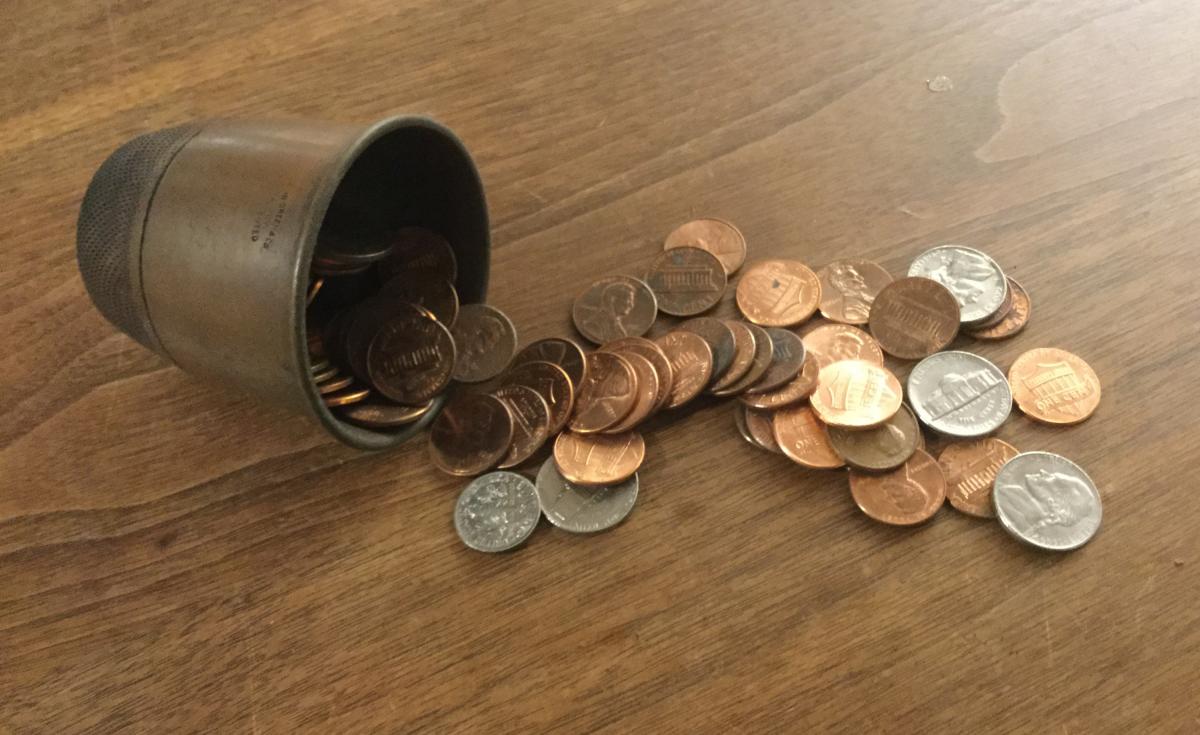|
|
|
 Joel's Blog Joel's Blog |
 Built-It Blog Built-It Blog |
 Video Roundup Video Roundup |
 Classes & Events Classes & Events |
 Work Magazine Work Magazine |
| Newer Entries... | |
 | Much Ado About Planing Stops - 06/27/2018 |
 | Woodworkers' Hangout - Hands on With Mitre Planes - 06/06/2018 |
 | My Bench Chisel History - 05/30/2018 |
 | English Paring Chisels - 05/23/2018 |
 | This Old Dog Learns New Tricks - 05/16/2018 |
 | Making Stuff, and Other Human Impulses - 05/02/2018 |
 | Getting Things Done - 04/24/2018 |
 | David R. Russell - Some Thoughts on His Legacy - 04/18/2018 |
 | eBay Fraud - 04/11/2018 |
 | Blog Entry or Filler - You Decide! - 04/05/2018 |
 | Clamp Vs. Clamp - 03/21/2018 |
 | The Seaton Chest Revisited - 03/14/2018 |
 | Cræft by Alexander Langlands - 03/07/2018 |
 | News: much is happening here & OSMO is arriving! - 02/24/2018 |
 | Beautiful Cabinet Shop Space Available for Rent in Gowanus - 02/05/2018 |
 | Safety Last - 01/31/2018 |
 | I Am a Panda - 01/19/2018 |
 | The Unheated Workshop - 01/10/2018 |
 | How to Cut a Groove in a Frame By Hand and Without a Plow Plane - 12/27/2017 |
 | How to Mortise the Moxon Way: Part 2, Chopping the Mortise - 12/20/2017 |
| Older Entries... | |
|
Hours: M-F 9:00-5:00, closed Sat,Sun Our Guarantee & Return Policy Shipping and Sales Tax Info Privacy Policy Holiday Calendar |
|
Contact Us:
Email: support@toolsforworkingwood.com Phone: 800-426-4613 or 718-499-5877 Visit Us in Brooklyn: Directions to Our Showroom © 1999-2019 toolsforworkingwood.com Powered by 01 Inc. Coded entirely in NYC |




Steven W.
Credit card issuers dumping the costs fraud like this on small retailers is a terrible externalized cost, right up there with major polluters. Small retailers have zero data, expertise, or energy to identify fraud of this kind. By contrast, the banks have all of those necessary elements and already utilize them in their fraud detection systems. But they lose incentive to continue investing in fraud prevention when they're allowed to leak those costs onto their retailer and cardholder customers.
Curious, what is the container(?) from which the change is spilling in the photo?
I had originally wanted to use a dented paper cup as the container but I didn't have one last night when I took the picture. What I did have was this giant copper thimble that I seem to have inherited - no idea what it was originally for. I normally use it for holding misc. change.
These days, most people in nearly all cases can receive and act on fraud check notices in seconds anyway, so it's not like it needs to delay even time-critical notices such as a supermarket transaction too much.
In the past, some credit-card numbers would have been stolen by people at "point of sale" -- especially when manual credit card transactions (imprints) were commonplace, since they had a copy of the credit-card imprint. The potential for this only seems to exist in "over the phone" orders these days, since the card rarely leaves the customer's hand for electronic transactions (ie. face-to-face, not internet).
These days, some businesses are not adhering to the PCI DSS credit card data security standards, and hacking of these business' computer systems is resulting in mass numbers of credit card numbers (plus other valuable info) being stolen when a breach occurs. For example, it is an absolute no-no to store someone's credit card number "on file", particularly if it is not encrypted.
If you're a hacker, you don't target the behemoths like Amazon for this kind of info, you target the businesses that might be just large enough to have a good source of CC numbers, but perhaps small enough to not have PCI DSS compliant systems.
These businesses are often the "ground zero" for any fraud that goes on, but I've never really heard of them being accountable to any degree. I guess that's because whilst we know that any given breach will contribute to the "mass" of stolen credit cards available, no one can necessarily prove a particular breach revealed the details of a particular card.
The other problem is that those companies that do suffer a breach are very, very reticent to reveal it, obviously because it makes them look bad (incompetent even).
My point, however, is that if you tighten up the "source" of stolen credit cards, then you indirectly reduce the amount of CC fraud.
Perhaps the silliest thing with all this is that a solution is already available that's pretty damn effective. A simple SMS phone message with a challenge code to the customer's mobile phone will pretty much kill any opportunity for fraudulent use. Obviously you'd only use that if the card was not a "direct read".
https://www.ebay.com/itm/Campaign-Furniture-by-Christopher-Schwarz/263188279282?hash=item3d473e6ff2:g:GZoAAOSwAQBZroB~
They are asking $137.00 for a used copy of Campaign Furniture from Lost Art Press.
New the book is $47.00 (with free shipping) from LAP.
I asked the seller why they are asking so much but they did not respond.
LAP got a laugh out of it. It's why I usually go straight to the main company if buying new.
Thanks Joel. Your company is a good one.
Thanks for doing the job you do. I know I appreciate it- and I think of you guys every time I use my awesome tuned Baldor grinder.
Mail order I accept cheques (checks) and can wait till they clear before sending items. Our banks now have to clear cheques in 4 days after which they have to take responsibility if they bounce. Kevin Frey mentioned SMS messages to verify a card perches, but here fraudsters have found ways to spoof phone numbers and also ways to send SMS messages which seem to come from banks. So be careful even on this.